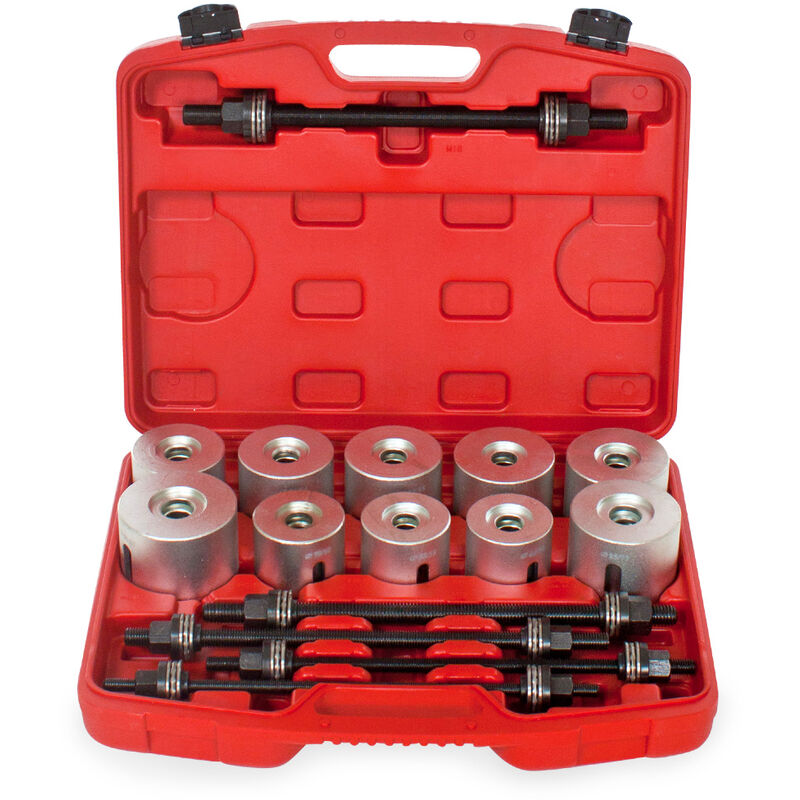Skip to end of metadata
-
Created by Former user (Deleted), last modified by Former user (Deleted) on Apr 13, 2021
Go to start of metadata
| Set of Bearing Installation Tools |
|---|
|
- The most common type of bearing puller. this type can be used to remove bearings and gears.
- The arms bend to the back of the bearing and hook into the race of the outer ring. A center screw is turned which applies a force on the shaft and an upwards force on the bearing removing it from the shaft.
- The fingers and arms of the puller can be changed to fit different sizes of bearing. This method causes minimal damage to the bearing's raceways.
- Pullers can also attach to the inner ring's raceway in situations where reaching the back of the bearing or gear is not possible. When the fingers attach to the inner ring the bearing should not be used again due to the amount of damage caused by the arms.
| Three Arm Bearing Puller
| Inner Bearing Puller
|
|---|
| |
- Internal bearing pullers can be used to remove a bearing set, a bushing, or a bronze sleeve in a blind hole
- This tool consists of a collet that can expand when inserted in the shaft hole in the bearing to grab onto the inner ring of the bearing. There is also a slide hammer attached to the shaft of the tool. The hammer gets pounded against the handle of the tool creating a force that pulls the bearing out its housing.
- An internal bearing puller is best used when there is no shaft attached and the bearing can't be reached from the outside.
Internal Bearing Puller Kit
| Internal Bearing Puller |
|---|
| |
- This type of puller is the safest bearing to use.
- The device uses two metal plates that wedge behind the bearing and pop the bearing off the shaft.
- The metal plates are attached on all four ends with heavy-duty wide diameter screws.
- As the screws are tightened the plates apply pressure on the inner ring of the bearing to remove it from the shaft. This tool works best when there is a gear or hub behind the bearing, so the tool has something to push against while applying pressure on the bearing.
| Bearing Splitter Plate | Bearing Splitter Plate in Use |
|---|
| |
- This tool set comes multiple sizes of impact rings to fit on to different bearing sizes
- While mounting a bearing, the proper sized impact ring is placed on bearing, next a sleeve is placed over top of the impact ring. This ring is then hit by a hammer force the bearing into place.
- This tool is used normally with medium to large size bearings. The bearing heater uses induction heating to apply heat to the bearing making it easier to install.
- Once heated the bearing should be pressed onto the shaft and held into position until cooled.
- The benefits of using a bearing heater are they reduce the man-hours spent hammering in bearings in cold mounting applications and they create very precise fits to the shaft they are applied to. Also, since the bearing isn't being pounded by a hammer the life-span of the bearing is increased.
| Bearing Induction Heater | Bearing Induction Heater in Use
|
|---|
| |











